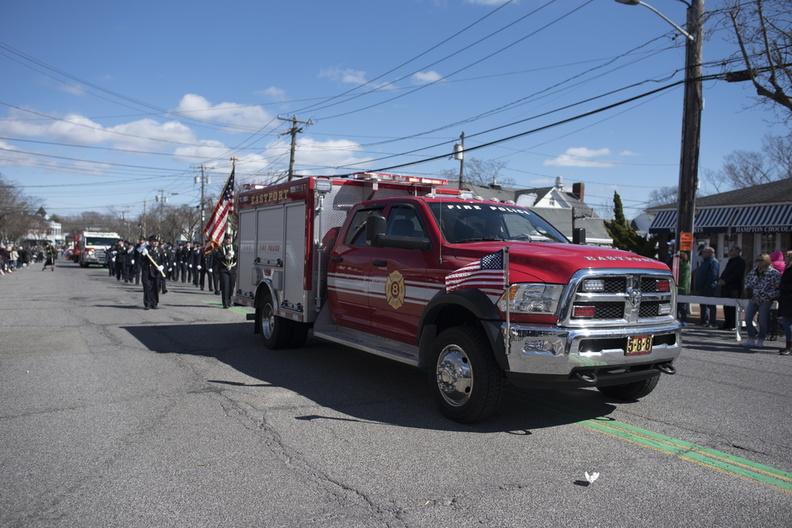Eastport Fire District Violated Procurement Policy, Audit Finds

The Eastport Fire District repeatedly failed to follow its policy that requires the agency to seek several quotes from vendors before approving certain contracts, according to a recent New York State audit.
District officials and the agency’s five-member board of elected fire commissioners did not seek quotes for comparison when it hired 10 companies for various services and insurance totaling $203,097 during the audit period of Jan. 1-Dec. 31, 2024, according to the 12-page audit that State Comptroller Thomas DiNapoli’s office released on Sept. 10.
“Officials did not seek competition because they were comfortable with the vendors they were using and believed they were receiving a good price,” auditors stated in the report. “However, without ensuring that competition is sought in accordance with the policy, the board and district officials are not assured that goods and services are acquired at the best price and that purchases are made in the most prudent and economical manner in the best interests of taxpayers.”
The report noted that the district — which provides fire protection services to Eastport, Speonk, Remsenburg and parts of Manorville — used the request for proposals process when it procured auditing services from an accounting firm prior to the state audit.
District policy dictates that purchases of goods and services between $2,000-$4,999 require two verbal quotes and purchases between $5,000-$19,999 require three written quotes, but district officials did not use the form that is attached to the policy and, as a result, did not document competitive pricing before purchasing equipment, repairs, maintenance, and sanitation, auditors stated.
Edward Schneyer, chair of the Eastport Fire District Board of Fire Commissioners, wrote that the board does not disagree with the findings of the audit and will ensure that the agency follows the policy in the future.
“The Eastport Board of Fire Commissioners finds that they have acted with due diligence with regard to all expenses approved during the 204 fiscal year,” he wrote. “These elements were not reported on each purchase order due to the repetitive native of the purchases, however the district will provide appropriate documentation going forward.”









